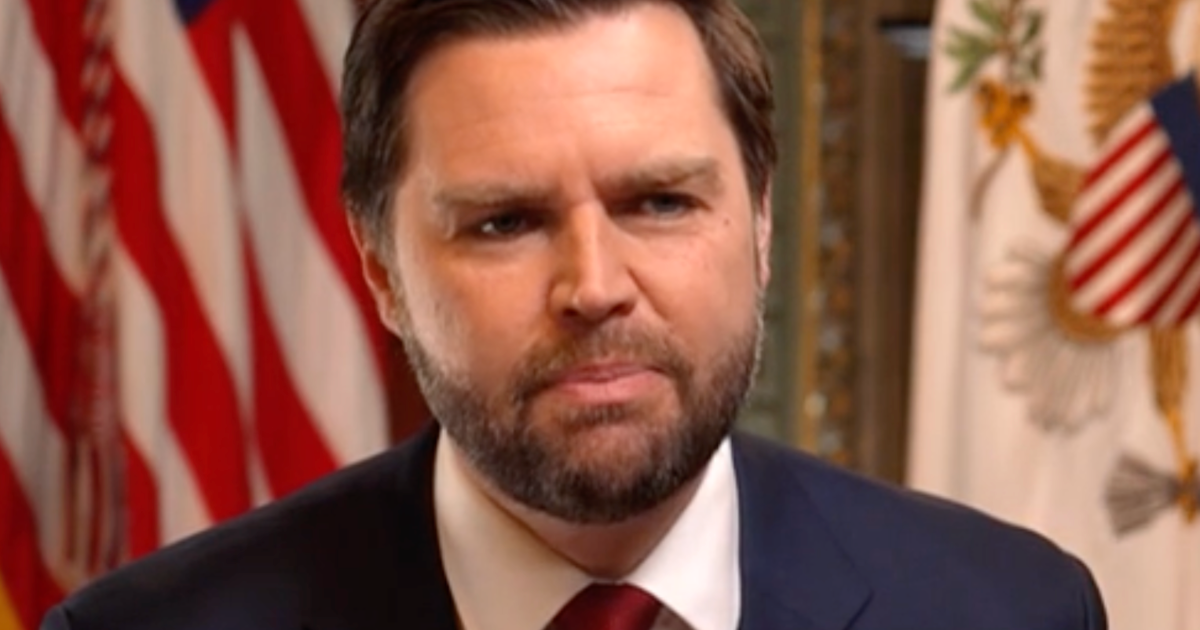Vice President JD Vance has been under scrutiny for his recent comments regarding the pardons issued by former President Trump to individuals involved in the Capitol riot on January 6, 2021. While Vance initially stated that those who committed violence during the riot “shouldn’t be pardoned,” he has since defended the 1,500 pardons issued by Trump, which included some of the most violent offenders.
In an interview with CBS News’ “Face the Nation with Margaret Brennan,” Vance was questioned about his stance on the pardons. Brennan highlighted Vance’s previous statement on Fox News, where he had differentiated between peaceful protesters and violent offenders, stating that those who committed violence should not be pardoned. When asked if he had advised President Trump against issuing blanket pardons to 1,500 individuals, including violent offenders, Vance defended the decision by arguing that there are “gray areas” in the situation.
Vance accused the Justice Department, led by Merrick Garland, of denying constitutional protections and applying double standards in prosecuting individuals involved in the Capitol riot. He claimed that the Justice Department had unfairly targeted and prosecuted over a thousand Americans in a politically motivated manner. Vance emphasized that the pardons were considered on a case-by-case basis, with Trump looking at 1,600 individual cases before making his decision.
Brennan brought up specific cases of violence against police officers during the Capitol riot, such as Daniel Rodriguez, who used an electro-shock weapon on an officer, and Ronald McAbee, who hit a cop with reinforced brass knuckles. Despite these violent actions, both individuals received pardons from President Trump. Brennan questioned Vance on how he could justify these pardons if he claims to stand with law enforcement.
Vance acknowledged that not everyone involved in the Capitol riot behaved perfectly but reiterated his belief that the Justice Department had unjustly prosecuted many individuals. He maintained that the process was politically motivated and applied a double standard, particularly when compared to the treatment of Black Lives Matter protesters involved in violent incidents. Vance argued that the Justice Department did not pursue similar aggressive actions against individuals involved in the Black Lives Matter protests, despite instances of violence and fatalities.
The comparison between the response to the Capitol riot and the Black Lives Matter protests has been a point of contention in the ongoing debate over the pardons issued by President Trump. Supporters of the pardons argue that they rectified perceived injustices and political bias in the prosecution of individuals involved in the Capitol riot. Critics, however, view the pardons as undermining the rule of law and condoning violent behavior.
In the aftermath of the killing of George Floyd by Minneapolis police officers in May 2020, millions of people participated in Black Lives Matter protests across the United States and around the world. The protests highlighted issues of systemic racism and police brutality, leading to calls for reform and accountability within law enforcement. The Trump-era Justice Department reportedly charged over 300 individuals with federal crimes related to the protests, including assaults on law enforcement officers.
Vance’s defense of the pardons issued by President Trump has sparked debate and controversy, with critics questioning his commitment to law and order. While Vance maintains that the pardons rectified perceived injustices and political bias, others argue that they send the wrong message about accountability and the rule of law. The debate over the Capitol riot pardons continues to divide opinions and raise questions about the role of political influence in the justice system.









